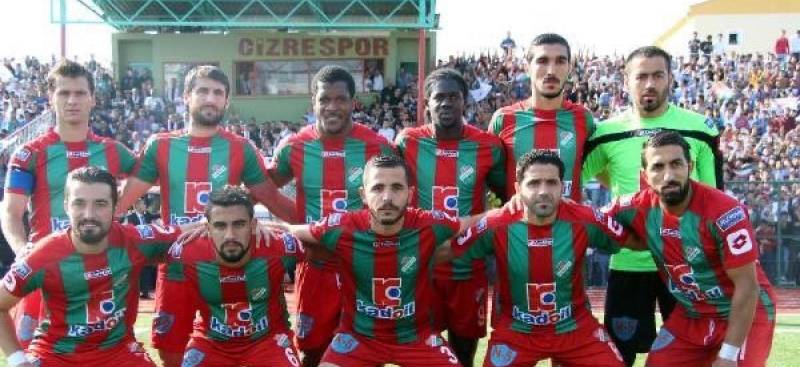“We had hosted them so well.” These words belong to Maruf Sefinç, President of Cizrespor Football Club. For a decade, Cizrespor has represented the city of Cizre, in the predominantly Kurdish region of southeastern Turkey. They have competed in the Turkish Football Federation (TFF)’s Third League since 2015.
Last February, Cizrespor had an away game on the Mediterranean coast with Serik Belediyespor. After the match ended in a 1-1 tie, Cizrespor was attacked, and some football players were wounded. Following the attack, Maruf Sefinç described the incident to the media.
As Cizrespor walks into the Serik stadium, a lively song by Tarkan—one of Turkey’s most famous pop stars—plays over the speakers. As soon as Cizrespor enters, the music changes, and the speakers begin blasting a song titled, “I Would Die for my Turkey”, which is quite popular among the country’s nationalists. Once the match begins, Cizrespor makes a goal to lead by 1-0, and the score on the scoreboard is replaced by the image of a Turkish flag. The referee’s calls are rather biased, and three of Cizrespor’s players are penalized. The game ends 1-1. Then the events begin. Objects are thrown from the stands. Serik Belediyespor’s trainers, footballers, and supporters begin attacking Cizrespor players. As always, the police watches from the sidelines. They cannot leave the stadium. It is not until an hour and a half later, when armoured vehicles intervene, that the Cizrespor players are able to leave.
In his recounting, Sefinç had said, “In the first period Serik’s team had come to Cizre. We had hosted them so well.”
Back then, this quote reverberated in my head for a long time: “We had hosted them so well.” Almost a year after these events, this week, Cizrespor announced that it would be pulling out of the league due to the attacks it has been facing. In short, the announcement was as follows:
“We do not have the power to stand up to the lawlessness of TFF and the Central Referee’s Association. Due to the injustices we have faced in our own stadium as well as at away games, due to the racist and nationalist behaviour of referees, our club president Maruf Sefinç has decided to pull Cizrespor out of the league.”
But I am sure Cizrespor had hosted everyone so well. Not only Cizrespor, but also many of us Kurds have been good hosts to many visitors from western Turkey.
I have seen this all around me since my childhood. I am not referring to regular hospitality. What I am talking about here is “extreme” hospitality that strives to explain to westerners that we here are good people. For years, Kurds have competed in hosting their “brothers and sisters” from the west with the mindset that “We should host them well so they can see what good people Kurds are.”
I do not know what our guests saw here and what impressions they left with, but we have seen a lot here in the past five years. In summer of 2015, the peace process between the Turkish government and the Kurdish movement collapsed, and pressures against Kurdish people have mounted since. During the 24-hour curfew in southeastern Diyarbakır’s central district of Sur that October, someone tauntingly wrote, “Ladies, we came and you were not here,” on a house. After the 24-hour curfew was lifted, the very day that Kurdish activist Tahir Elçi was assassinated in November, I read another piece of graffiti that said, “We are here, where are the bastards?”
This talk of hospitality reminds me of my mother’s attempts to host teachers from the west who would stay in our building, sent by the central Turkish government to educate Kurdish children. Some of those teachers that we “hosted well” would teach us in school what a bad thing the Kurdish language and Kurdishness were. But my mother always hosted them so well.
Despite all of this, how strange it is that my mother, Cizrespor’s president, and many more Kurds cannot believe what is happening to them. They assume that if you host your neighbour well, your neighbour will host you well in return. But your neighbour does not even see you as a neighbour, and instead tries to throw you out of your own home.
Why did I write this piece? It is because I had a few things to say to those who display this discriminatory and racist approach, to those who oppress Cizrespor, Amedspor, white-collar Kurds in Istanbul, Kurdish students in Izmir, Kurdish agricultural workers in Ordu, Kurdish businesspeople in Ankara, Kurdish singers in Bodrum, and many others:
We had hosted you so well.
